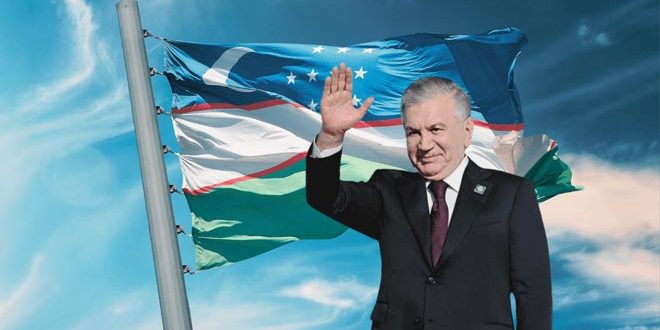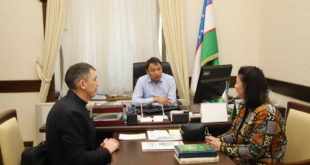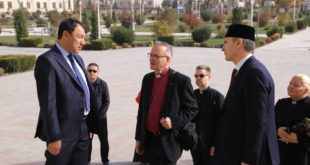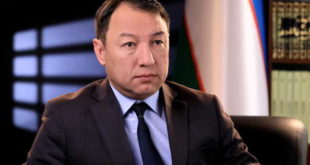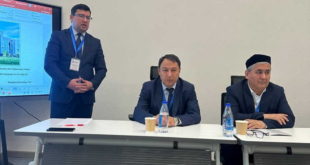The dynamic changes of the modern world have compelled many nations to adopt renewed perspectives on human livelihood and the future of global development. Uzbekistan is no exception.
Like other countries, it faces the challenges of a rapidly changing and increasingly complex world. This global scenario is shaped by multiple factors which include intensified conflicts and wars among nations, widening technological and social inequalities, deepening economic and humanitarian crises, and the weakening of international institutions meant to address such issues.
At the 80th Session of the United Nations General Assembly, the President of the Republic of Uzbekistan, Shavkat Mirziyoyev, outlined Uzbekistan’s priorities and achievements in navigating this reality while affirming the vision of a New Uzbekistan. His address reflected both national development goals and a global outlook grounded in solidarity, peace, and human dignity.
Building a Prosperous and Inclusive Nation
Uzbekistan’s foremost priority is to improve the lives of every family and citizen while reducing poverty and enhancing human dignity. Several significant achievements demonstrate the country’s progress which include trade, investment, and transportation in the region have grown nearly fivefold. Uzbekistan has also established joint investment funds, trade and industrial zones in border areas, and major infrastructure projects have been established. Besides that, the country has emerged as a committed independent actor in international relations, nurturing solidarity, stability, and a distinct Central Asian identity. The poverty rate in Uzbekistan has been reduced dramatically, from 35 percent to 6.6 percent through reforms in education and science, high-tech industries, “green” energy, transport modernization, small business development, and job creation.
A significant enabler for the above scenario is the existence of strong education system, characterized by serious attention given to all levels of education, right from pre-school to higher education levels. The coverage of preschool education has increased from 27 percent to 78 percent. The enrollment of youth in higher education has risen from 9 percent to 42 percent while the country has introduced enhancement of the status and prestige of the teaching profession as a decisive priority.
The country also aims at establishing an advanced healthcare system, strengthening the role of women in the socio-political life and entrepreneurial sector of our country. It is committed to fulfilling its obligations in achieving the Sustainable Development Goals, aiming to join the ranks of “upper-middle-income” countries by 2030. The country is working hard to realize the intention of turning Central Asia into a space of peace, good-neighborliness, and partnership.
Strategies for Regional and Global Cooperation
Uzbekistan attaches primary importance to expanding mutually beneficial relations with international partners and UN institutions. Within Central Asia, the government has moved beyond the era of closed borders and disputes, focusing instead on collective progress and shared prosperity. In this relation, President Mirziyoyev stressed that Uzbekistan’s vision extends beyond its borders, particularly in supporting the Afghan people in their aspirations for peace and development, including participation in regional transport and energy projects. The other concern is the worsening humanitarian crisis in Gaza and calling for an immediate cessation of hostilities alongside political negotiations. Uzbekistan also welcome dialogue aimed at resolving the conflict in Ukraine through diplomatic means.
Global Commitments and Initiatives
Uzbekistan also outlined a series of strategic initiatives that reflect its global responsibilities:
a. World Summit on Professional Education. Uzbekistan will host the summit to strengthen the role of education in addressing global challenges, align with SDGs, and enhance professional training that equips learners with technical and applied skills.
b. Counter-Terrorism and Reintegration. Uzbekistan has established the Regional Council on Rehabilitation and Reintegration in partnership with the UN Office of Counter-Terrorism. The President proposed transforming this into an International Competence Centre and opening a regional UN counter-terrorism office.
c. Global Mechanism on Interconnectivity. The aim of this establishment is to safeguard international transit corridors and logistics chains, especially for landlocked developing countries vulnerable to instability in the transport system.
d. Restoration of the Aral Sea Ecosystem. The initiative is to provide continuous efforts to address climate change, mitigate environmental damage, and mobilize global support.
e. World Water Conservation Forum. The forum will be conducted in Uzbekistan to deliberate on water as a global development challenge, promote innovative technologies, and adopt a roadmap for sustainable management.
f. Global Pact on Climate Migration. The initiative is advocating for international mechanisms and legal frameworks to manage growing migration pressures driven by environmental change.
g. Artificial Intelligence and Digital Equity. Proposing an International Cooperation Mechanism for sharing best practices in Artificial Intelligence for healthcare, education, and culture, while preventing global inequalities in digital development.
h. World Youth Movement for Peace. This initiative aims to inspire youth to uphold values of peace, mutual trust, and humanism while actively contributing to global development. It is proposed that the movement is headquartered in Uzbekistan,
i. Islamic Enlightenment and Heritage. Promoting tolerance through the establishment of a Center of Islamic Civilization and showcasing the legacy of great scholars such as Imam Bukhari, Imam Termizi, and Imam Maturidi at the UN.
j. Dialogue Among Civilizations. This initiative is to strengthen solidarity and open dialogue with all nations to advance shared human goals.
President Shavkat Mirziyoyev’s UN address articulated a clear and strategic vision for New Uzbekistan, a nation that seeks prosperity for its people, peace in its region, and solidarity in the world. By linking national development to global responsibilities, Uzbekistan positions itself not only as a reforming state but also as a proactive partner in addressing humanity’s most pressing challenges, from poverty reduction and education reform to climate change, conflict resolution, and intercultural dialogue. Uzbekistan’s message to the world is clear, that the future of humanity must be shaped through dignity, cooperation, and collective responsibility.
Shukran Abd Rahman is a Professor of Industrial and Organisational Psychology at the Department of Psychology, AbdulHamid AbuSulayman Kulliyyah of Islamic Revealed Knowledge and Human Sciences, International Islamic University Malaysia. He is currently a Fellow Researcher at the Imam Bukhari International Scientific Research Center in Samarkand, Uzbekistan.
Dr. Shahzod Islamov serves as Deputy Director of the Imam Maturidi International Scientific Research Center under the Cabinet of Ministers of the Republic of Uzbekistan, where he advances scholarly studies on Maturidi theology and promotes harmony through rigorous academic research anchored in Islamic tradition.
Source: islamicity.org
 Imom Buxoriy xalqaro ilmiy-tadqiqot markazi bukhari.uz
Imom Buxoriy xalqaro ilmiy-tadqiqot markazi bukhari.uz







